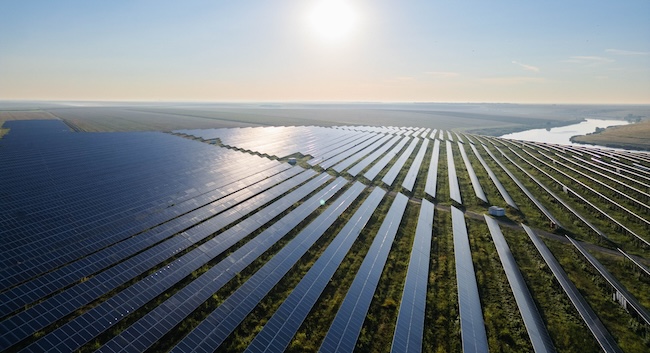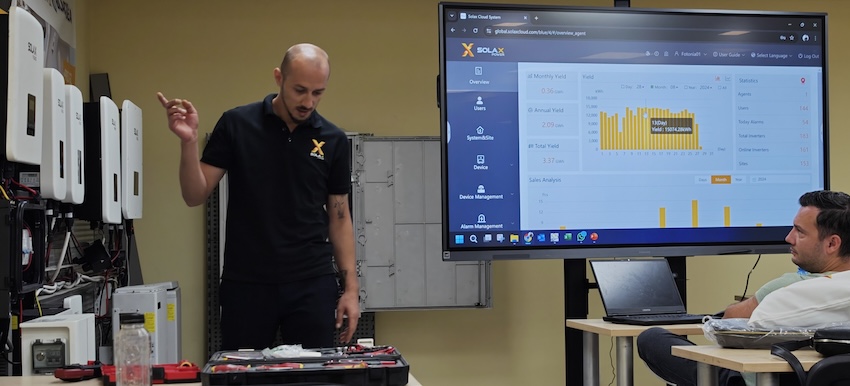Parapet completes Romania’s first solar repowering project for Kraftfeld’s photovoltaic plant
Parapet has successfully completed Romania’s first solar repowering project, restoring full operational capacity to a 9.5 MWp photovoltaic power plant owned by the Austrian Kraftfeld Group.

The plant, Solar Electric Frăsinet, located in southern Romania, spans approximately 16.5 hectares and had been experiencing reduced electricity production due to damaged photovoltaic panels.
The repowering effort, completed in August, involved replacing 11,550 faulty photovoltaic panels that had developed cracked back sheets, which led to underproduction of electricity. These defective panels were replaced under warranty, allowing the plant to resume generating nearly 12 GWh of electricity per year—enough to power over 3,200 households.
This project marks a significant milestone in Romania’s renewable energy sector, as it is the first instance of a repowering initiative for a solar power plant in the country. Parapet, which has undertaken similar projects across Europe, including in France, Germany, and Austria, upgraded about 3 MWp of the plant’s installed capacity without requiring any structural changes. This was made possible through the use of newer, more efficient solar panels that have a higher power density.
Paul Moldovan, Chief Technology Officer of Parapet, emphasized the importance of this project for Romania’s renewable energy landscape: “The Frăsinet project is one of the pioneering solar repowering initiatives in the country. It represents an important step in improving the performance of older photovoltaic parks and restoring them to full operational efficiency. We expect to see an increase in similar projects as Romania works to optimize its existing renewable energy infrastructure.”
As part of its sustainability efforts, Parapet ensured that 220 tons of photovoltaic waste generated during the project were recycled. This included significant quantities of glass (75%), aluminum (9%), and other materials such as silicon, copper, and adhesives. The recycling process was managed by a local authorized contractor, minimizing environmental impact while enhancing the plant’s long-term viability.
Parapet’s previous European repowering projects have involved replacing over 100,000 photovoltaic panels, increasing efficiency by roughly 30% and extending the lifespan of these plants by an additional 15 years.
Repowering has emerged as a vital strategy for the renewable energy sector, particularly in regions where aging solar farms require modernization to maintain their output and efficiency. Ben Salm-Reifferscheidt, Managing Director at Kraftfeld, praised the successful completion of the Frăsinet project: “This repowering initiative underscores our commitment to renewable energy and carbon reduction. Parapet’s technical expertise allowed us to complete the upgrade without expanding land use or making structural changes, thanks to the improved performance of the new panels.”
Kraftfeld’s decision to repower the plant instead of pursuing new land-based solar projects reflects a growing industry trend toward enhancing the performance of existing infrastructure rather than expanding into new areas. This approach can help countries like Romania maximize the potential of their current renewable energy assets while reducing environmental strain.
The successful repowering of the Frăsinet solar plant could set the stage for similar projects in Romania, as the country continues to develop its renewable energy sector. By focusing on modernization and efficiency improvements, the Romanian energy market may witness an uptick in repowering initiatives, helping to meet the growing demand for clean energy.





.jpg)